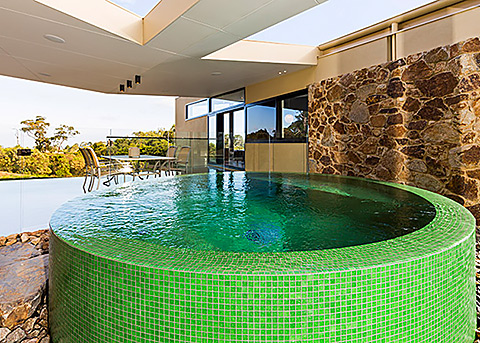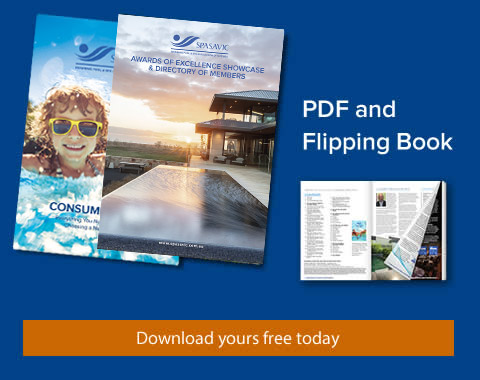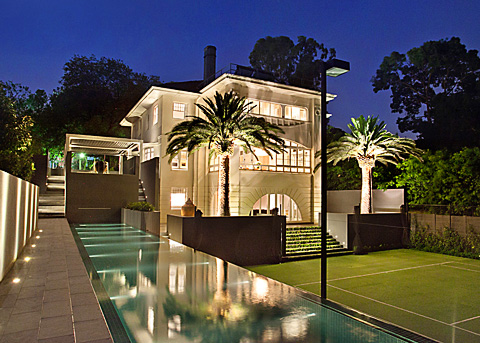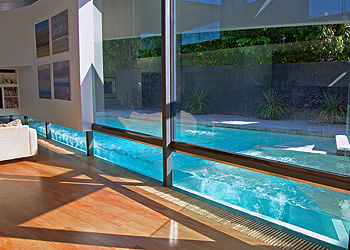A pool may hold a lot of water, but it doesn’t need to consume very much
SPASA Victoria has embarked on a significant sustainability campaign to guarantee the long-term future of pools and spas in Victoria.
Water conservation is a priority in the State of Victoria. The best thing a pool owner can do is install a new - or convert your existing pool - to a Water Neutral Pool.
For full details go to spasavic.com.au
If you already have a pool or are thinking about buying one, there are many ways to help conserve water. The average domestic swimming pool holds between 20,000 and 60,000 litres of water. Once it’s filled, it should only need topping up occasionally.
Just reducing the amount you top up, and the number of times you do it, can result in significant water savings. Water that is not filtered and balanced can become so contaminated it has to be drained away and replaced. That’s a waste. Poorly maintained pools may also require more frequent backwashing. So the best way to conserve water is to maintain the right chemical balance and ensure your filtration is adequate.
ADEQUATE FILTRATION
Run the filter for 8 to 10 hours a day in summer or whenever anyone is using the pool. This will skim surface leaves and dust away and keep the water clear and clean. Sand or DE filters are cleaned by reversing their flow to flush away any trapped material. This process is called ‘backwashing’, and is wasteful if done too often or for too long. Only continue backwashing until the sight glass provided is clear. See the Filters Fact Sheet 10 for more details.
CHEMICAL BALANCE
Maintaining the correct water balance will avoid the need to empty and refill your pool, but you don’t have to be a scientist to correctly balance your pool. Just follow these three basic rules. First, adjust the Total Alkalinity level. Second, adjust the pH. Third, ensure the required amount of sanitiser is added either manually or by an automatic chlorinator.
See Fact Sheets 5 & 7 on Water Balance and Sanitation for more information and always consult your SPASA Victoria Member Pool Shop or service agent before handling chemicals.
CORRECT WATER LEVEL
The water level should always remain about half way up the skimmer box opening. Overfilling the pool reduces the effectiveness of the skimmer.
POOL COVERS & WATER TANKS
Pool owners often invest in a pool cover to keep heating costs down. But these covers also dramatically reduce evaporation and water loss.
Pool covers are generally more expensive than blankets. They cover the whole pool, preventing up to 95% of evaporation, compared with a blanket where there may be gaps between the blanket and the edge of the pool.
Pool blankets are an affordable option, available in bubble plastic or foam, which float on the surface of the water.
SPASA Victoria strongly endorses the installation of water tanks to provide adequate supplies of top up water.
INCREASE SHADE
By covering the pool area with shade, you can further reduce evaporation, as well as protecting swimmers from sunburn.
PREVENT WIND EXPOSURE
Wind contributes to evaporation. To reduce water loss, adjust the landscape around your pool with walls and hedges that create shelter from the wind.
WHAT TYPE OF FILTER SHOULD I USE?
Sand filters require backwashing which, if you backwash every week in summer, can use up to 5000L of water every year. It is recommended that you purchase a cartridge filter if you are installing a new pool or replacing the filter. Cartridge filters do not require backwashing to be cleaned, so they use less water. If you are not at a stage where you can change to a cartridge filter, there are secondary filter systems which will allow you to return water used in back flushing to the swimming pool.
LEAKS
One drip per second can waste 7,000 litres of water in a year and a steady dribble would drain the entire volume of water in the pool. All pools - especially older pools - need to be checked regularly for damp spots. Consult your SPASA Victoria Pool Shop Member or Service agent for a thorough audit of your entire water management system.
SAFETY SAVES WATER TOO
Around a pool, children can become over excited and over confident. They should be supervised at all times when in the pool and their behaviour monitored. ‘Bombing’ and general horseplay can cause accidents and waste a lot of water. Healthy exercise or relaxation is what the pool is for. Excessive splashing will see many litres evaporate from the surrounding deck or paving.
To put all this into perspective, a pool contains a lot of water but it doesn’t consume very much – or at least it shouldn’t. Showering, watering the garden and washing the dishes all consume much more water. That water goes into the ground or down the drain, whereas a pool or spa stores water for use over and over again.



